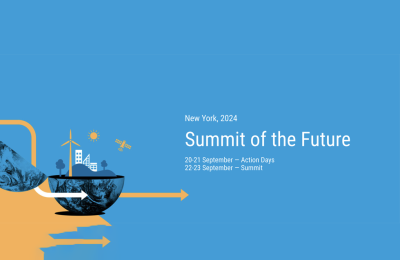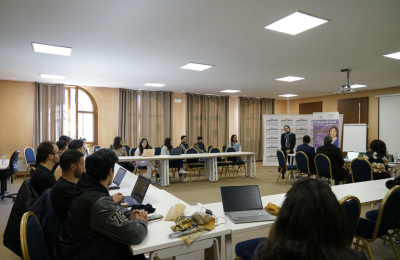November 27, 2024, Dhaka, Bangladesh
Key Highlights
The webinar, held in collaboration with the Bangladesh Internet Governance Forum (BIGF) highlighted the importance of leveraging AI to drive economic and social progress in Bangladesh. Mr. A. K. Sabbir Mahbub and Mr. Emad Tinawi discussed current applications, emerging trends, and the transformative potential of AI in achieving SDGs. Key applications that help enhance public service delivery and address critical governance challenges were discussed. Our keynote speakers emphasized addressing ethical concerns, building local expertise, and fostering global collaboration. The webinar calls to action for using AI responsibly to drive innovation, enhance governance, and promote inclusive growth.
Webinar Summary
AI has emerged as a transformative force, offering significant potential to address the socioeconomic challenges faced by Bangladesh. The webinar explored how Bangladesh integrates AI technologies to address developmental challenges, enhance governance, and foster innovation. Mr. A. K. Sabbir Mahbub and Mr. Emad Tinawi discussed current applications, emerging trends, and the transformative potential of AI in achieving SDGs.
Discussions focused on how the Bangladeshi government is leveraging and utilizing AI for various applications, including Natural Language Processing (NLP) for speech-to-text and document digitization, AI-driven surveillance systems, AI-powered risk assessment tools, and identity services through voice and facial recognition technologies. These technologies help enhance public service delivery, optimize processes, and address critical governance challenges.
During the webinar, participants explored emerging trends, including using Machine Learning for forecasting and predictions, data enhancement, and solving interoperability challenges in decision-making. Mr. Mahbub highlighted opportunities such as telemedicine, predictive maintenance, and addressing competency gaps with AI tools.
Moreover, some key challenges were addressed, including ethical concerns, lack of competence in government algorithms, socioeconomic divides, and public resistance. To address these challenges, the webinar emphasized the importance of robust policy frameworks, capacity building, and collaboration to ensure AI is deployed responsibly and inclusively. Mr. Mahbub and Mr. Tinawi recommended leveraging international frameworks like UNESCO’s readiness assessment, fostering innovation, and prioritizing human-centered design for effective AI deployment.
In conclusion, the session called attention to AI’s significant potential to drive progress in Bangladesh, calling on stakeholders to bridge existing gaps and collaborate effectively to achieve a sustainable and prosperous future for all.
SDG 8: Decent Work and Economic Growth
SDG 11: Sustainable Cities and Communities
SDG 17: Partnerships for the Goals



